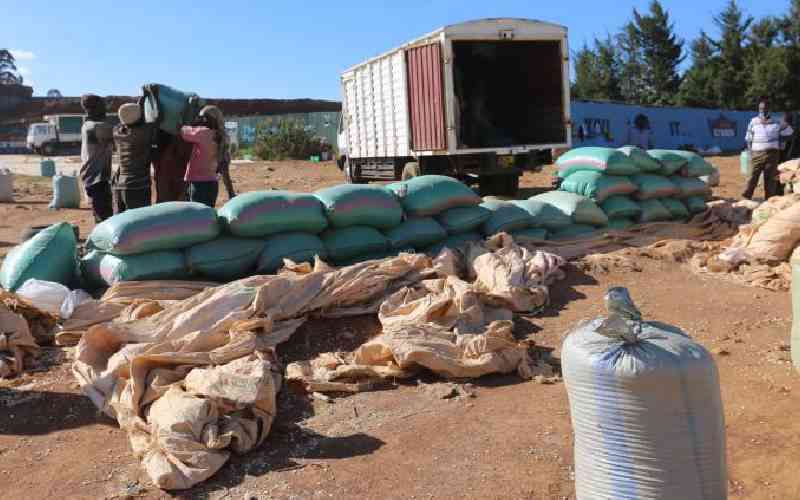×
The Standard e-Paper
Join Thousands Daily

Anxiety is rife as farmers query government's failure to open National Cereals and Produce Board (NCPB) stores for strategic food reserves, while farmers are being asked to sell their produce. [Peter Ochieng, Standard]
With about three months to the next planting season, maize producers are a worried lot.